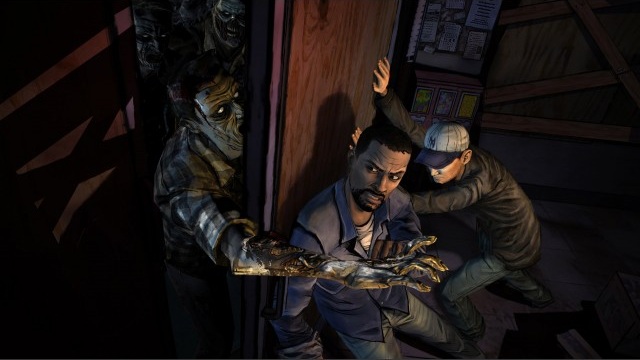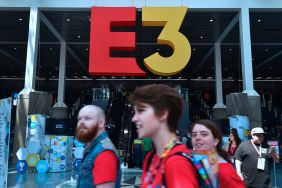The continuing story of survival horror… shambles onto consoles.
From Strongbad, to Back to the Future, to Jurassic Park, the folks over at Telltale Games have given their take on a number of established franchises, producing adventure-styled licensed games with an episodic approach. Their interpretation of The Walking Dead is their latest in this effort, and after having played through a preview build of Episode One, I must confess it may be their most ambitious effort yet.
Many felt a bit stung by all the quick-time events of Jurassic Park, so I will lay to rest right now that they've been kept to a minimum from what I played and even in one instance, the concept was used in a way that contributed to the narrative. The Walking Dead plays much more like an sensible adventure game with some light action sequences and puzzle-solving that manages to have tension that the genre usually lacks. I should step back a moment, though, and make something very clear: This video game is a prequel series to the comic books and isn't connected to the TV show's alternate take of events.
Players assume the role of Lee Everett, a man who was being sent to prison due to murder charges before the zombie apocalypse grants him freedom. Before he knows it, he's found himself partnered with a young girl named Clementine who's been hiding up in her tree house, which has kept her alone but safe from the zombie threat.
The Walking Dead clearly aims for an adult audience, beyond the expected gore and occasional swearing, with this ambiguous father/daughter style of relationship being the key component of the narrative. Anyone who embraces the zombie genre for all it encompasses will probably be able to tell you that, really, the zombie apocalypse setting is really more about exploring themes concerning humanity and how we define it than the actual undead themselves. (And if no one told you that before, I did just now.)
In tune with that idea, The Walking Dead caught me by surprise with its focus on choice, and Telltale repeatedly focused on this concept when discussing the game with me. You'll be making decisions just as often as figuring out what tools to use for what job to fend off undead. It's evocative of Mass Effect in terms of how Dialogue choices can twist the story around, potentially into different branches or at least different flavors. There were a couple of instances during Episode One where I was advised that one decision or another—like whether to make a trip during the safety of day or the cover of night—would totally change the characters I'd end up interacting with, at least for the next chunk of story.
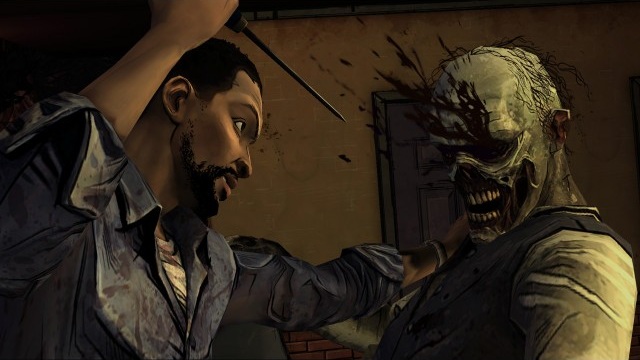
Based on how Episode One concluded but without spoiling anything, I feel it's safe to say that Telltale is very ambitious in how it wants to create what they referred to as a "tailored experience", in that players will encounter different characters and, potentially, different scenarios based on choices. When watching the 'Next Time on The Walking Dead', I was told that the particular snippets I viewed were derived from my own save data's decisions. We are talking about zombies here, and this is, after all, The Walking Dead, so you can expect that death and otherwise sticky situations will crop up frequently. Given that at least on one occasion I had to make the choice to save one group member's life over another, it definitely seems like choices made in my playthrough would impact following episodes in at least one way or another.
I could go on about what Telltale seems to be trying for here, but essentially, it feels safe to assume they are aiming for a smaller-scale story with branching dialogue and events like Mass Effect's. While it's hard to say now whether this will mean radically different core plot endings or not, it's nice to see a game with a survival theme that actually has players make tough decisions. There's no 'paragon' or 'renegade' here, but the choices you make will matter. The top left of the screen periodically delivers small notifications in the form of “___ will remember what you said” or “___ noticed your loyalty". So it's rather direct that side characters can change their reactions to the player over time. Immediately after finishing Episode One, I wanted to replay it on a separate save file just to make entirely different choices and see what would happen… which rarely never happens for me in the first place.
It's important to notice that none of the decisions are flat out 'good/bad' or even 'chaos/lawful', and most decisions have four options. In one instance, Lee has to lie about his past no matter the choice, reinforcing the fact that Lee is not an empty shell, but his own character. Many games that grant player choice make it difficult to care about or relate to the playable protagonist. Not here.
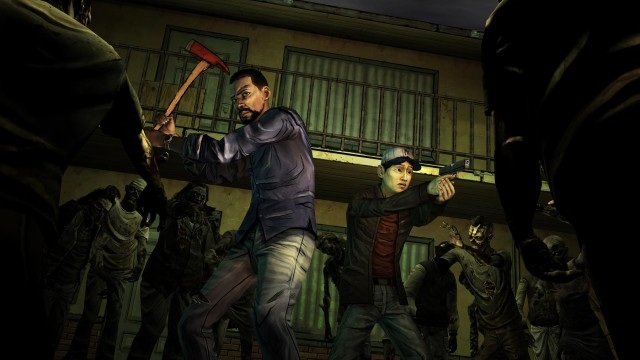
After reading all of that, you're probably thinking, "Huh. This sounds a lot more like a Bioware RPG than a classic adventure game such as Monkey Island, or Sam and Max.' That's really because dialogue and choices were where a lot of my two-hour experience for Episode One was spent. That said, the game also tries to keep players tense with light action sequences that involve aiming the cursor at a zombie's head as it comes at you or frantically searching for a nearby weapon and landing a blow. These never signficantly disrupt the core experience or end up feeling like a QTE-marathon, but instead are there in the same spirit of those in Resident Evil 4—to keep players on their toes.
In the end, though, the point-and-click style of adventure you know well from Telltale is totally intact, and probably more sensible and logical than I've seen it in most other games of the genre. Not a single puzzle I solved seemed random or by chance; everything had a logical reason to how it worked within the Walking Dead universe, and the big concluding climax puzzle involved sneaking around an area infested with a few unaware zombies with you trying to take each out one at a time silently.
This will probably serve as an interesting bridge for people who haven't been able to get into the 'adventure' genre in the past. For that matter, it can serve as an introduction to the series, the comics, or even just as a diversion for fans of zombie-related material who are sick of seeing the ghouls plastered in every other game genre just for the heck of it. Here, they are used as a sensible means of building tension during puzzles while also evoking a melancholic story about humanity and making tough calls.
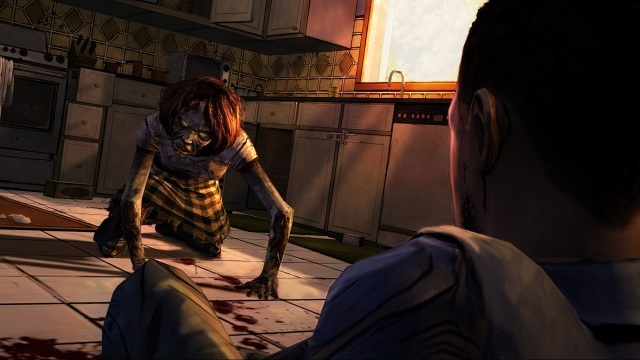
As far as the presentation goes, the music and audio were low-key, but the voice acting was solid all around, with writing that fits the tone of Kirkman (the creator of the series). It is a downloadable title, so it was visually a bit rough around the edges, but Telltale's particular style of character design comes out quite nicely when applied to a watercolor and sketchbook amalgamation. The game's visuals are intentionally designed to look like colored comic pages and it works out well. Animation could admittedly be a bit stiff here and there, but the facial expressions consistently sell you on the thoughts and emotions going on in a way that combines both the fun and campy style of Telltale's previous projects with the pessimism and dark tones of The Walking Dead's universe.
I was worried that The Walking Dead would have some of the faults of Jurassic Park, but I was pleasantly surprised by Telltale's earnest effort in combining their tried-and-true adventure mechanics with something new. This is perhaps their most ambitious project yet, with their mature, branching storytelling. Time will tell if they can reach the mark they're aiming for, but the first episode is a great start out of the gate, which will be out soon on PSN, XBLA, and Steam for $5 with four consecutive episodes slated to release on a monthly basis afterward, so players will be able to try it out for themselves soon enough.
